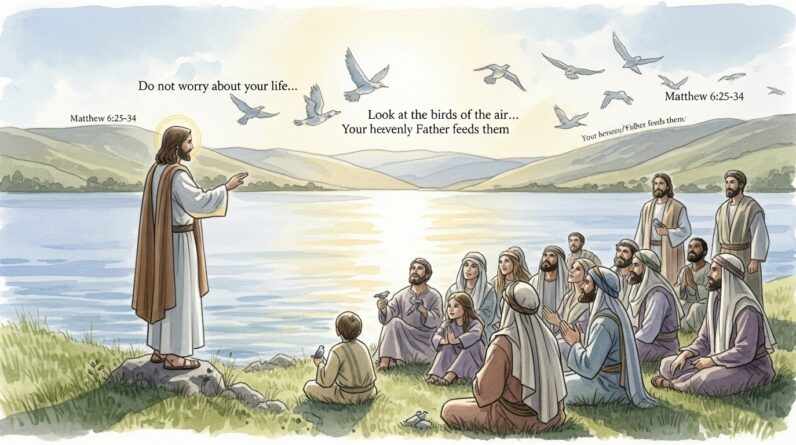5 Powerful Ways to Practice Biblical Stewardship With Your Finances
You might have found yourself sitting at the kitchen table, staring down a stack of bills, wrestling with the tension between faith and finances. You’re not alone. The thought of biblical stewardship can feel daunting, a relic of ancient times when sheep and olive oil might have passed hands instead of credit cards and online transactions. But here’s the thing—biblical stewardship is timeless, and it can breathe life into the way you manage your money even in today’s fast-paced world.
Stewardship, as it is laid out in the Bible, extends beyond mere budgeting or financial planning. It’s a holistic approach that encompasses your mindset, values, and actions. Consider it a partnership with God where your financial decisions reflect a divine trust bestowed upon you. Let’s explore five powerful ways you can manifest this partnership.
1. Understanding the Concept of Stewardship
When you think about stewardship, think beyond ownership. You are entrusted with resources, not to hoard or merely spend at your discretion, but to manage with wisdom and care. The term ‘steward’ comes from the old English word for ‘manager.’ Your finances are, in essence, on loan to you.
Reflect on Ownership vs. Stewardship
Psalm 24:1 reminds you that “The earth is the Lord’s, and everything in it, the world, and all who live in it.” This verse is foundational. You are a caretaker, managing not only money but every blessing with intentionality. Embracing this mindset shifts everything—from how you view possessions to the decisions you make. It frees you from the pressures of ownership and empowers you to be a conscious custodian of His creation.
Engaging in Prayerful Decisions
Before making financial choices, engage in a dialogue with God. Proverbs 3:5-6 advises: “Trust in the Lord with all your heart and lean not on your own understanding; in all your ways submit to him, and he will make your paths straight.” This isn’t about asking for material wealth; it’s about seeking wisdom and clarity in your stewardship journey. Praying over financial decisions opens your heart to divine guidance.
2. Practicing Generosity
Generosity is at the core of biblical stewardship. It flips the script from ‘what can I gain?’ to ‘what can I give?’ This is not just about tithing, though that’s a significant piece of the puzzle, but about fostering a generous spirit in all interactions.
Start With Tithing
The Bible clearly sets tithing as an act of faith and obedience. Malachi 3:10 states, “Bring the whole tithe into the storehouse, that there may be food in my house. Test me in this, says the Lord Almighty, and see if I will not throw open the floodgates of heaven and pour out so much blessing that there will not be room enough to store it.” By dedicating the first fruits of your income to God, you acknowledge His provision and align your finances with His kingdom’s purposes.
Cultivate a Habit of Giving
Beyond the tithe, explore ways to cultivate generosity. Whether it’s supporting a local charity, sponsoring a child, or simply helping out a neighbor in need, these actions transform hearts and communities. Luke 6:38 says, “Give, and it will be given to you. A good measure, pressed down, shaken together and running over, will be poured into your lap. For with the measure you use, it will be measured to you.” Giving is a cycle, creating abundance and joy for both the giver and the recipient.
3. Embracing Contentment
In a world that’s constantly nudging you to want more, contentment can feel like a radical notion. Yet, contentment is a pillar of biblical stewardship, steering you away from materialism and towards peace and satisfaction with what you have.
Find Joy in Simplicity
Philippians 4:11-13 explains Paul’s philosophy on contentment: “I am not saying this because I am in need, for I have learned to be content whatever the circumstances. I know what it is to be in need, and I know what it is to have plenty. I have learned the secret of being content in any and every situation.” Gratitude is a practice. Start by listing what you’re thankful for—your daily bread, a supportive community, the unmistakable touch of grace in your life.
Resisting Materialism
The allure of the latest gadgets or fashion can divert your resources from their true purpose. By resisting materialism and choosing contentment, you free yourself from the unnecessary burden of excess possessions. Hebrews 13:5 nudges you further: “Keep your lives free from the love of money and be content with what you have, because God has said, ‘Never will I leave you; never will I forsake you.”

4. Practicing Wisdom in Spending and Saving
Biblical stewardship involves thoughtful management of what you have. It means making informed decisions and seeking God’s perspective in every financial choice.
Develop a Budget
Creating a budget is a practical tool that supports wise stewardship. Jesus used agricultural metaphors to teach budgeting principles in Luke 14:28: “Suppose one of you wants to build a tower. Won’t you first sit down and estimate the cost to see if you have enough money to complete it?” By setting parameters on your spending, you’re not only safeguarding your financial future but also being intentional about where your money goes.
Save for Future Needs
While living for the present holds importance, preparing for the future is equally vital. Proverbs 6:6-8 draws wisdom from ants: “Go to the ant, you sluggard; consider its ways and be wise! It has no commander, no overseer or ruler, yet it stores its provisions in summer and gathers its food at harvest.” Savings can mean the difference between stressful financial emergencies and navigating unforeseen circumstances with peace.
Be Cautious About Debt
Debt can be a tool when used wisely, but it can easily spiral into bondage. Romans 13:8 advises you: “Let no debt remain outstanding, except the continuing debt to love one another, for whoever loves others has fulfilled the law.” Steer clear of unnecessary debts and prioritize paying them off swiftly to live more freely and give more generously.
5. Living a Life of Accountability
True biblical stewardship doesn’t happen in a vacuum. It flourishes in communities where guidance and accountability are readily available.
Seek Wise Counsel
Proverbs 15:22 sheds light on this: “Plans fail for lack of counsel, but with many advisers they succeed.” Seeking advice from godly mentors or financial advisors can refine your financial strategies and align them with godly principles. Additionally, they can provide perspectives that you might overlook.
Regularly Review Your Finances
Being a steward means regularly taking stock of what you have and how you’re using it. Hebrews 13:17 reminds you, “Give an account of what you have done.” Regular financial reviews and adjustments should be part of your stewardship practice. These reviews allow you to reflect, pray, and realign your finances with your values and mission.
Participate in Community Stewardship
Lastly, immerse yourself in collective stewardship. Together, your community can make significant impacts—whether it’s a church project, a neighborhood initiative, or a mission abroad. This shared accountability enriches your understanding and practices of biblical stewardship.
In embracing biblical stewardship, you’re essentially bridging the divine with the mundane, weaving faith intricately into every thread of financial decision-making. It’s not just about following rules; it’s about embodying a scriptural narrative that transforms both you and the world around you. So, take these steps, trusting in the balancing act between responsible management and generous giving, and watch how they will enrich not only your bank account but your soul.
If you’ve found this guide insightful, give it a clap, leave your thoughts in the comments below, and subscribe to my Medium newsletter for more soul-stirring reflections on living a life shaped by faith.
Explore More
For further reading and encouragement, check out these posts:
👉 7 Bible Verses About Faith in Hard Times
👉 Job’s Faith: What We Can Learn From His Trials
👉 How To Trust God When Everything Falls Apart
👉 Why God Allows Suffering – A Biblical Perspective
👉 Faith Over Fear: How To Stand Strong In Uncertain Seasons
👉 How To Encourage Someone Struggling With Their Faith
👉 5 Prayers for Strength When You’re Feeling Weak

📘 Jesus and the Woman Caught in Adultery – Grace and Mercy Over Judgement
A powerful retelling of John 8:1-11. This book brings to life the depth of forgiveness, mercy, and God’s unwavering love.
👉 Check it now on Amazon
As a ClickBank Affiliate, I earn from qualifying purchases.
Acknowledgment: All Bible verses referenced in this article were accessed via Bible Gateway (or Bible Hub).
“Want to explore more? Check out our latest post on Why Jesus? and discover the life-changing truth of the Gospel!”








